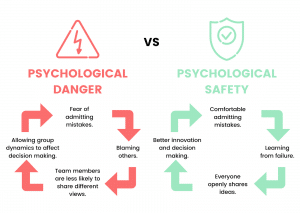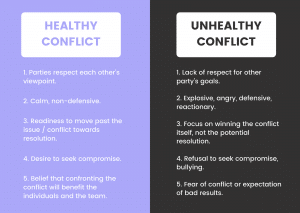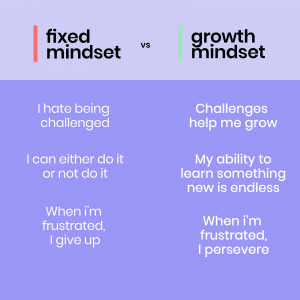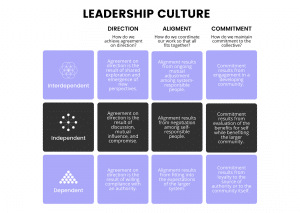The SBX Team is incredibly excited to debut this week’s blog post, How To Take Your Startup Team From Good to Great, written by Fahd Alhattab! Sandbox had the opportunity to host Fahd as the keynote speaker presenting at our Annual General Meeting in 2020. He captivated our community with delivering a speech full of leadership tips and how to become ‘Stronger Together’!
Continue reading to learn how to take your startup team from good to great!
I recall building my first team – boy, was I out to lunch in how I expected them to work with me. You see, we have this tendency to believe that if we throw a group of people together and give them a task to complete that they’ll figure out how to get it done with minimal effort.
This simply isn’t the case.
People have different personalities, communication styles, and just general ways of working and often these are hard to effectively align without actively coaching the team members. Teamwork is much harder than we give it credit for, and what’s even harder is creating a thriving culture that fosters a high performing team.
To understand how to create cultures that build high performing teams, we have to decipher how to create an effective culture and what makes a team high performing. The answers to these questions have become my life’s journey and through all my years of investigation I have narrowed down how to create a powerful team and influential culture for your startup into six crucial steps.
1. Psychological Safety

This makes psychological safety the first and most foundational step of any high performing team and sets the stage for each level to follow.
Psychological safety is defined as an individual’s perception of the consequences of taking risks and being vulnerable in front of their teammates.
If there is a high sense of psychological safety team members feel secure around each other and are comfortable taking risks and be vulnerable. Team members are willing to make mistakes, speak up, and share different opinions without fear of repercussions.
Characteristics of psychological safety on a high functioning team are team members who are comfortable admitting mistakes, employees who learn from their failures and see them as an opportunity for growth, and a group of people who openly share ideas and feedback with each other.
When a team has a high sense of psychological safety, they know that they can trust each other. This creates a deeper sense of connection among team members.
They understand that they have one another’s backs and aren’t going to be condemned by each other for making mistakes.
Ultimately, it’s the trust each team member has in one another that allows them to be vulnerable with each other.
This trust then gives way to the natural development of effective relationships among team members which is the hallmark of all high performing teams.
Share on facebook
Share on linkedin
Share on whatsapp
Share on twitter
2. Empowerment
Once psychological safety is established, team members understand that they can trust one another. But it’s not enough to trust. The team must also act on that trust. To show your team you trust them, you must empower them through structure and clarity. By this, I mean there must be a well-defined structure in the breakdown of the team.
In other words, each team member must have a firm understanding of what role they play on the team and what the requirements are of that role. When team members clearly understand how their contributions affect the team,they feel empowered to act and make decisions as the expert in that role.
By empowering your team members, you ensure there is effective decision making even throughout all levels of your organization. This creates a flat organization rather than one of hierarchy where people feel inferior in contrast to upper management.
Removing hierarchies within your startup eliminates the need for middle management, leaving room for more important items for your startup’s budget. When you empower your team, you give them room to speak up and share more collaborative feedback with one another.
3. Embrace Conflict
The third step in creating an effective team culture for your startup is embracing conflict. Although this may seem counterintuitive at first, healthy conflict is an extremely crucial element of any high performing team. Healthy conflict acts as a form of effective communication which creates productive feedback and discussion, leading to greater team collaboration.

But, for this pressure to exist there must first be an opportunity for deeper discussion, which is what conflict allows. As the team realizes conflict creates productive and deeper discussions, they naturally become more committed to one another as teammates because they understand they perform better as a unit rather than individually.
But, healthy conflict doesn’t necessarily occur naturally. It’s important to remember that team conflict can’t be embraced without psychological safety. Otherwise, conflict can be destructive. Psychological safety creates the needed foundation of trust to enable team members to debate openly to collaborate and give productive feedback.
Beyond psychological safety, productive conflict is also reinforced by empowerment. Once team members are empowered to speak up and voice their opinion they feel safe in debating with one another. This debate leads to productive discussion and improved team collaboration which results in higher team performance.
STay up to date on the changing face of business
4. A Culture of Leadership
The next step in creating a high performing team is to foster a culture of leadership. 
This culture of leadership is successfully implemented from the trust everyone shares which empowers the team to make decisions and take action within their own position. To this extent, each team member leads to the strength of their own role on the team.
For example, the team member responsible for marketing is trusted to make advertising decisions for the benefit of the entire team, while members of the finance team are most trusted to take leadership in annual budget decisions. This form of decision making, and leadership also allows the team to realize that they don’t need immediate answers to problems they come across.
They know that they can rely on each other for help and that given any problem the team will be able to find the solution through the collective expertise of the group. This then sets the stage for a growth mindset where team members feel comfortable coaching each other and are able to understand challenges to be opportunities that help them to adapt and improve as a team. Implementing a culture of leadership within your startup team, creates an opportunity for your team to reach their full potential.
5. Making an Impact
Once you have established a culture of leadership within your startup team, your next task is to ask whether or nor not your team feels that the work they do helps to move the mission of the business forward. 
An essential part of creating a high performing team culture is to understand that your employees need to feel that they are more than a cog in a machine. Employees must feel like they have a high sense of contribution to the team and the startup as a whole if you want them to produce their best work in the most efficient way.
When team members feel that the work that they do genuinely contributes to the overall goals of the organization, they feel more motivated to contribute their best to the startup. They understand that their work is important to the business and that it contributes to something bigger than even the business itself. Additionally, they understand that their work is also successful to the success of a team as a whole.
This allows them to feel purposeful in their work and understand how they bring value to the team. When team members feel valued they act more productivity and generate a higher quality output of work. With greater employee satisfaction and engagement, mission-driven startups are able to foster a higher-performing organizational culture.
6. An All-Encompassing Vision
The final step to create a winning culture is to have an all-encompassing vision that the entire team stands behind. When we’re clear about the future your startup team is building, then your team is able to rally behind that vision.
When team members realize a common goal they understand that it’s in their best interest to work together productively for the betterment of the team and the mission.
By working with your team through these six steps you will be able to take them from good to great.
ABOUT THE AUTHOR:

Fahd’s path to leadership began with philanthropy. Compelled by his background as an at-risk immigrant from a low-income family, he raised over $1M for local charities, founded a camp for underprivileged children, and was awarded Canada’s Top 20 Under 20 Award for his dedication to the community.
On the pursuit of entrepreneurship, Fahd served two terms as President of Carleton University Students’ Association where he represented more than 25K students, managed a team of 150 staff, and oversaw the allocation of a $9M budget.
During his Presidency, Fahd launched a student entrepreneurship center that has since founded +50 student startups and raised more than +$300K in seed capital. This catapulted him to develop a mobile tech startup where he raised +$70K in a crowdfunding campaign.
Built on thirteen years of experience building successful teams, Fahd identified the tried and true ingredient that set high performing teams apart from competitors — they had leaders who prioritized team performance over individual success. He named them Unicorn Leaders.
Delivered through captivating and actionable keynotes, Fahd now retrains managers to become architects of effective teams through his principle of Unicorn Leadership.
Fahd has spoken to +50K people across North America on leadership and been named Rising Star Speaker and Most Entertaining Speaker by the Canadian Association of Professional Speakers.
Working alongside his team at Unicorn Labs, Fahd is committed to giving start-up founders the leadership skills to build Unicorn companies. He delivers team-building retreats and customized training programs that upgrade staff and start-up managers into self-driven leaders.
To learn more about Fahd AlHattab, you can visit his website, linkedin and instagram!



